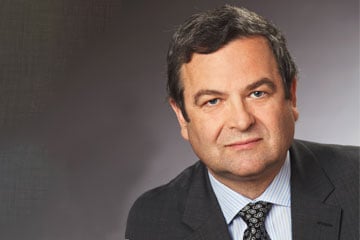
An Ontario judge has ruled that allegedly negligent lawyers cannot intervene with full-party status in medical actions a doctor launched following her care at The Ottawa Hospital.

An Ontario judge has ruled that allegedly negligent lawyers cannot intervene with full-party status in medical actions a doctor launched following her care at The Ottawa Hospital.
In Loy-English v. The Ottawa Hospital et al., 2017, Dr. Ingelise Loy-English filed three medical negligence actions over care she received in 2013 at the hospital.
According to the ruling, in the first medical action, the doctor’s solicitors were Kevin Butler of Mann Lawyers LLP.
However, the doctor later hired new counsel to pursue all three medical actions, and began a negligence action against Butler and Mann Lawyers LLP, alleging that Butler and the firm had not sued doctors involved in her treatment within the right limitation period.
This meant the defendants in the second and third actions wanted to terminate the proceedings based upon limitation defences, said the ruling, and see the judge strike those actions.
However, the solicitors sought leave from the court to intervene in all three medical actions with full party status.
They argued they should be involved in all three proceedings because if the doctor who was named as the defendant in the first medical action “has any joint liability for the plaintiff’s injuries then there will be no or minimal compensable loss that can be claimed in the solicitor’s action.” They also argued they had an “interest in the limitation issue to be argued in the second and third medical actions and in the assessment of damages in the medical actions.”
But the move to intervene in all three actions was denied by Justice Charles Hackland of the Ontario Superior Court of Justice.
“[The counsel for the defendants] point out that the solicitors were not involved in any way in the plaintiff’s medical care. Therefore they could not have anything relevant or of assistance to say in the adjudication of the three medical actions in which they seek to intervene. They observe, in my view correctly, that there is no precedent for allowing former solicitors to intervene in these circumstances,” said the ruling.
“They argue that it cannot be the case that solicitors who have allegedly missed a limitation period, could be allowed to intervene in the underlying tort action to, in effect, attempt to influence the liability outcome,” the ruling added.
It was not a complete wash for Butler and Mann Lawyers, with the judge noting that counsel in the second and third medical actions “are in agreement that the moving parties do have a direct interest in the pending motion for judgment on the limitation issues in these two actions.”
“I agree that the moving parties shall be permitted to intervene in and fully participate in that motion and in any subsequent appeal,” said the ruling.
Miles Obradovich, owner of Obradovich Law, says the case is unusual.
“No one wants to be sued so [the solicitors] want to prevent the possibility of that happening by participating in the case, to help argue that it was not barred by time,” he says.
“The lawyer [allegedly] made a mistake and now wants to minimize his damages. Most lawyers don’t want to be in this position to begin with,” he says.
“[Lawyers] should follow best practices concerning the management of their files to ensure that they have particular systems, to ensure they have done the right investigation and to ensure that the subject matter of the litigation is something that they have knowledge about [and] that they are not inexperienced with.”
Gary Srebrolow, chairman of the health law group and partner at Blaney McMurtry LLP, said “proper assessment of the case in a timely manner, especially in a complicated medical malpractice matter, may have prevented the need to even bring such a motion.”
“The main ‘takeaway’ for lawyers from this case, as I see it, is to try and avoid in the first place putting yourself in a position where you have to ‘fight’ to get back in an action using something like intervenor status,” said Srebrolow.
Darryl Cruz, partner at McCarthy Tétrault LLP and counsel to the doctor who was named as the defendant in the first medical action, says he thought the judge made the right call.
"In particular, in the first medical action, there are no limitation period issues and the case is purely about the medical care rendered to the plaintiff. It would be completely inappropriate to allow the original plaintiff’s lawyer, who has since been sued by his client for failing to name the right parties, to intervene in the underlying case,” he said, in an email.
Cruz said Butler "cannot contribute to the subject matter of the medical negligence dispute, as he was not involved in the medical care and brings nothing to the table on issues of care.”
"To the extent that there are limitation period motions in the second and third medical actions, the defendants in those cases were always prepared to have the lawyer intervene on those motions,” he said. "For some reason, however, the lawyer asserted that he should be given 'full rights' as an intervenor and this too was rightly denied."
Editor's note: Updated on Nov. 7 at 12:30 p.m. to include comments from Darryl Cruz.